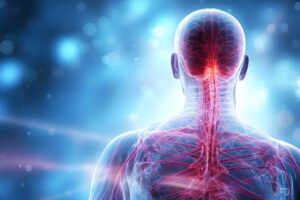Healthcare professionals area, The Bold Column
A term big enough to capture the profound transformation underway as microbial intelligence moves from fringe fascination to fundamental force.
Events, Healthcare professionals area
The report by MicrobiomePost distills key trends from Vitafoods Europe 2025, highlighting which cutting-edge innovations are shaping the nutraceutical and functional foods industry.
Pediatrics
The gut microbiota evolves throughout early life, especially during key transitions phases such as weaning.
Scientific research
A healthy, diverse gut microbiota is important for mounting strong and lasting immune responses to vaccination.
Vitamins like riboflavin may support health not only through direct effects, but also by boosting beneficial microbial functions.
Oncology
Certain bile acids produced by gut microbes can interact with specific receptors in the body, influencing immune cells to fight tumors.
Gastroenterology
A recent study highlights the potential for dietary interventions in treating C. difficile infection and inflammatory conditions such as inflammatory bowel disease.
Gastroenterology, The Bold Column
The gut microbiome is now being explored not only for its role in health and immunity, but more and more for how it might improve performance. So, what happens when…
A new scientific publication on the beneficial effect of probiotics on cold symptoms relief, immune response enhancement, and quality of life in healthy adults during winter seasons.
Neuroscience
Modifying the microbiota could influence multiple sclerosis progression and provide new therapeutic targets.













